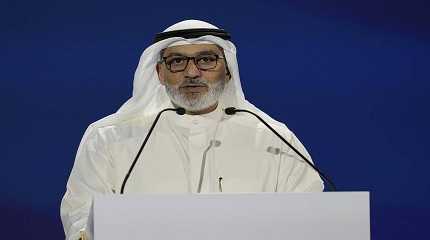
MOSCOW, November 27. /TASS/: The manner in which the International Energy Agency (IEA) chose to preach to representatives of the oil and gas sector lacks tact, Secretary General of the Organization of Petroleum Exporting Countries Haitham Al Ghais said, cited by the OPEC on its website.
Last week, the (IEA) released a report titled "The Oil and Gas Industry in Net Zero Transitions." In it, the agency said that the oil and gas industry is facing a "moment of truth" and should "choose between fueling the climate crisis or embracing the shift to clean energy," OPEC noted.
"It is ironic that the IEA, an agency that has repeatedly shifted its narratives and forecasts on a regular basis in recent years, now addresses the oil and gas industry and says that this is a 'moment of truth,'" Al Ghais noted. "The manner in which the IEA has unfortunately used its social media platforms in recent days to criticize and instruct the oil and gas industry is undiplomatic to say the least. OPEC itself is not an organization that would prescribe to others what they should do," the top OPEC official said.
The framework proposed by the IEA to assess the alignment of company targets with the net zero scenario "is a tool intended to curtail the sovereign actions and choices of oil and gas producing developing countries, through pressurizing their National Oil Companies," OPEC noted.
This document also runs counter to the Paris Agreement’s "bottom-up" approach, where each country decides on its own how to contribute to reducing global greenhouse gas emissions, based on national capabilities, OPEC said. "Regrettably, the IEA report now also calls technologies such as carbon capture utilization and storage (CCUS) an 'illusion,' even though Intergovernmental Panel on Climate Change assessment reports endorse such technologies as part of the solution to tackle climate change," the Organization noted.
"Energy security, energy access and energy affordability for all must go hand-in-hand with reducing emissions," the OPEC Secretary General said. This requires huge investments in all kinds of energy and all technologies." At OPEC, we repeat that we believe the world has to concentrate on the task of reducing emissions, not choosing energy sources," Al Ghais stressed.
"In a world where more dialogue is needed, we repeat that finger pointing is not a constructive approach," Al Ghais noted. "We do see a ‘moment of truth’ ahead. We need to understand that all countries have their own orderly energy transition pathways, we need an assurance that all voices are heard, not just a select few, and we need to ensure that energy transitions enable economic growth, enhance social mobility, boost energy access, and reduce emissions at the same time," he added.




